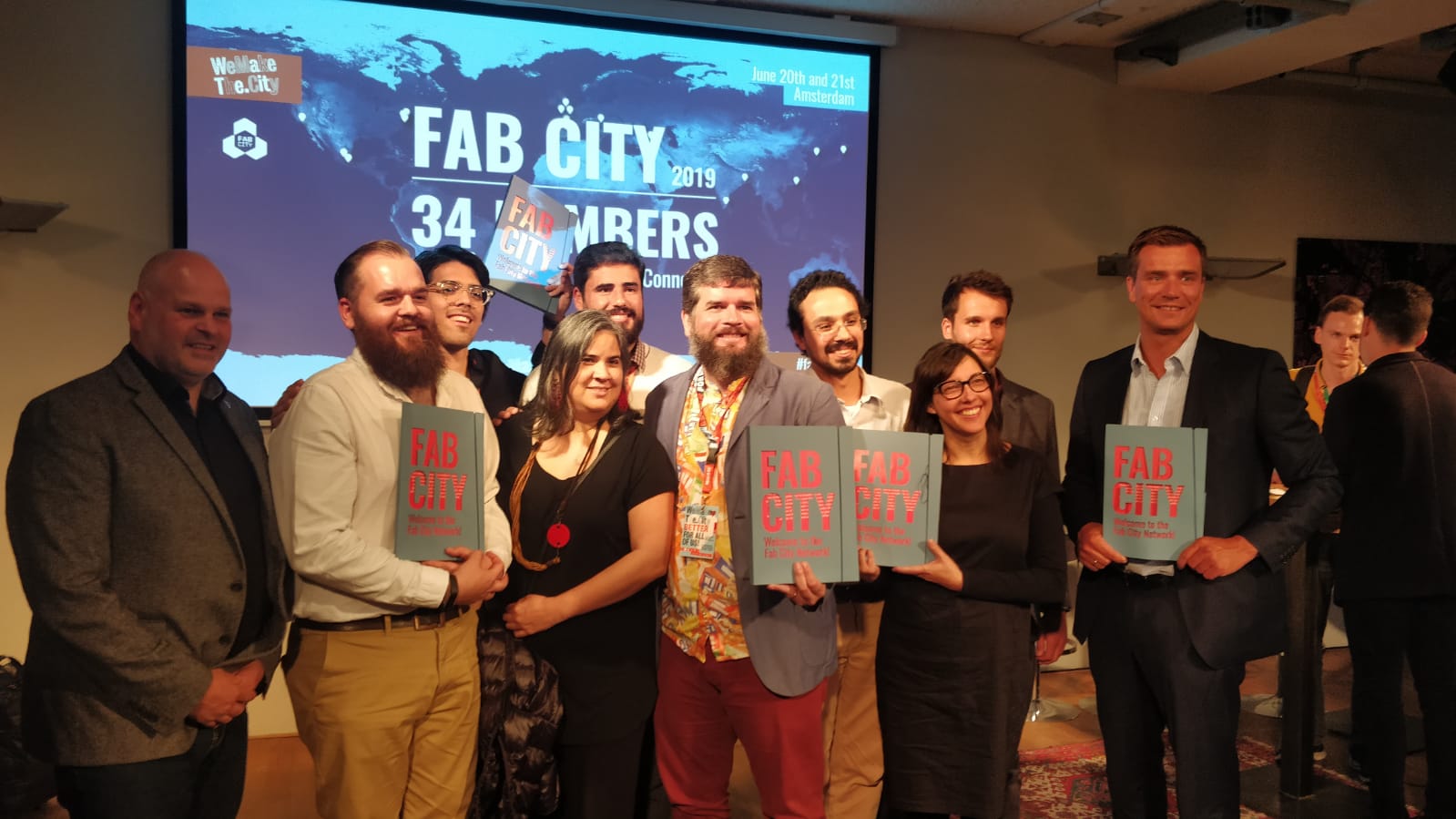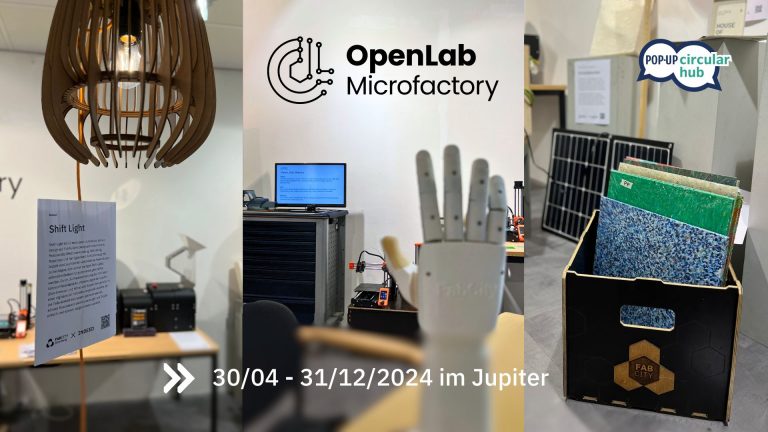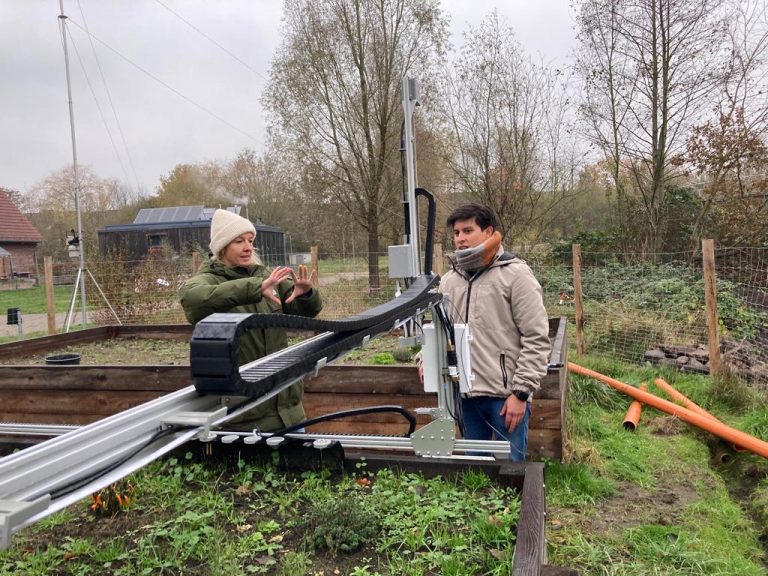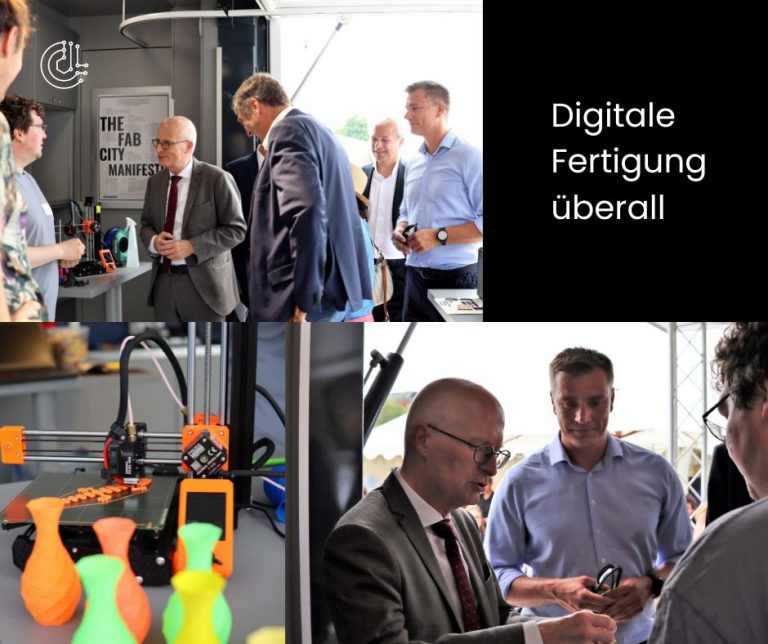As the world faces increasing environmental challenges, the need for more conscious production, resource conservation, and sustainable practices has never been more critical. Digital fabrication is emerging as a key player in meeting these challenges by enabling local, efficient production processes that promote sustainability.
The Fab City Global Initiative
The Fab City Global Initiative is an ambitious movement aimed at reshaping how cities produce and consume resources. Launched in 2014, the initiative envisions a future where cities become more self-sufficient, moving away from the traditional “Product In, Trash Out” (PITO) model and embracing a “Data In, Data Out” (DIDO) approach. This transition encourages cities to import digital designs and locally produce goods, dramatically reducing waste and dependence on global supply chains.

Source: Whitepaper: Download Latest Research on Global Connected Data
The Fab City Initiative is built on several key concepts that guide its vision for transforming cities:
- Local Production: Cities can use digital fabrication technologies such as 3D printers, CNC machines, and other open-source hardware to produce their own goods. This not only promotes innovation but also reduces the carbon footprint associated with transporting products across long distances.
- Circular Economy: The Fab City initiative aligns closely with the principles of a circular economy, where materials are continually reused, recycled, or repurposed. This closed-loop system reduces the extraction of new resources and minimizes waste.
- Global Collaboration: While the focus is on local production, the Fab City network fosters global collaboration. Cities are encouraged to share open-source designs, knowledge, and best practices, creating a community that works together to solve common urban challenges.

Die OpenLab Microfactory für die lokale Produktion
The goals of the Fab City Initiative focus on long-term sustainability, resilience, and innovation in urban environments:
- Sustainability: Reducing environmental impact through local, sustainable production processes.
- Urban Resilience: Building resilience by reducing reliance on fragile global supply chains and empowering cities to respond to economic and environmental challenges.
- Social Equity: Democratizing access to digital fabrication tools, ensuring that communities have greater control over their means of production.
- Innovation: Encouraging a culture of innovation by providing open access to cutting-edge digital manufacturing technologies.
Fab City in Hamburg
Since becoming a Fab City in 2019, Hamburg has actively integrated the initiative’s principles into various projects and events. Over the years, we have had multiple opportunities to promote digital fabrication and sustainability. Recently, three notable events have taken place, highlighting our ongoing efforts:

OpenLab Mobile at Scholz Mechanik
In collaboration with Süderelbe AG, we hosted a series of workshops at Scholz Mechanik, where employees were introduced to digital fabrication technologies such as 3D printers, laser cutters, and CNC milling machines. These hands-on workshops offered participants the opportunity to develop and implement ideas for their company, while also learning about the broader Fab City concept and its sustainability advantages.
Dr. Melanie Leonhard, Senator for Economic Affairs, visited the event and engaged with employees, expressing her enthusiasm for how 3D printing and digital manufacturing technologies can drive innovation and strengthen the local economy. She emphasized how these technologies offer new ways for companies to innovate and improve sustainability across industries.

Klimakongress at TU Hamburg
On September 24th, we participated in the Klimakongress at TU Hamburg, which gathered around 650 students, teachers, and guests under the motto “Face Climate Change.” As part of this event, we represented the Helmut Schmidt University with our OpenLab Mobile and delivered a lecture on the role of digital fabrication in promoting the circular economy.
By engaging with upper-secondary-level students, we had the chance to raise awareness about the environmental benefits of digital manufacturing. We are thrilled by the interest and curiosity this sparked, particularly in how these technologies can contribute to a more sustainable future.

Hamburg Sustainability Conference
The Hamburg Sustainability Conference on October 7-8 provided another excellent platform to showcase our work. Manuel Moritz and J.C. Melgar-Mariscal from the New Production Institute presented several innovative projects, including the OpenLab Starter Kit and the Libre Solar Box, both of which were developed using open-source ideals. These projects demonstrated how digital fabrication and sustainable production can go hand-in-hand.

Während der öffentlichen Sitzung am 7. Oktober nahmen wir am Pop-Up Circular Hub teil, wo wichtige Redner verschiedene Aspekte der Nachhaltigkeit, Open-Source-Technologie und dezentralen Produktion thematisierten. Zu den behandelten Themen gehörten:
- Fab City Hamburg (Axel Sylvesterm, Jan Peuckert and Niels Boeing)
- Open Source Software und -Hardware (J.C. Mariscal-Melgar)
- Microfactory Concept (Juan M. Grados Luyando)
- Open Source Resource Management Systems (Michel Langhammer)
- Climate-Friendly Energy for Plastic Recycling in Boa Vista, Cape Verde (Mathias Rüsch)


The event was a powerful reminder of the incredible potential of combining digital manufacturing with sustainable practices. We were also featured on RTL Nord, which highlighted our efforts in promoting the ideals of Fab City. You can catch the feature here (min 2:20): RTL Nord.
Looking Ahead: Building a Sustainable Urban Future
As Hamburg continues its journey as a proud member of the Fab City Global Initiative, we are committed to pushing the boundaries of what cities can achieve through local production and global collaboration. By embracing digital fabrication technologies and open-source principles, we aim to transform Hamburg into a hub of innovation, sustainability, and resilience.
Our vision is clear: to build a city where local communities are empowered to produce what they need, where waste is minimized through a circular economy, and where the future of urban living is shaped by collaboration rather than competition. Hamburg is poised to be a leader in this global movement, setting an example for other cities to follow.
With each project and partnership, we take another step toward a more equitable, resilient, and environmentally conscious future. The road ahead is challenging, but by continuing to innovate and share knowledge, we believe that cities like Hamburg can lead the way in creating a sustainable tomorrow—where cities don’t just consume, but produce responsibly.

Fab City – Decentralized digital production for urban value creation is funded by:








